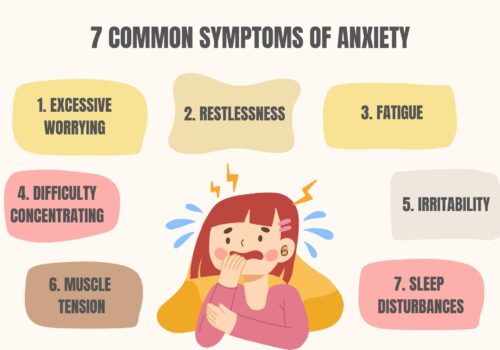Military service is often very different from what people expect before they join; not everyone is suited for it. The experiences soldiers face aren’t for everyone’s eyes, and this is just one of the reasons why many come back feeling devastated and suffering from PTSD (post-traumatic stress disorder). Many of them turn to substance abuse to cope with their trauma. This article will examine the connection between military service and substance use disorders among veterans and discuss how people can support their loved ones in dealing with – among other conditions – anxiety, depression, and deep sadness after they return home.
Statistics on the Substance Abuse Disorders Among Veterans
Since this topic is very sensitive, it’s best first to consider the facts: just what percentage of US veterans use substances to cope with their trauma?
Unfortunately, substance abuse disorders are quite common among US veterans. According to the National Institute on Drug Abuse (NIDA), marijuana is the most commonly used drug among US veterans, with 3.5% of them reporting regular use and 1.7% using other illicit drugs within a month. From the years 2002 to 2009, cannabis use disorders rose by over 50% among veterans treated in the Veterans Health Administration (VHA) system. Additionally, more than 10% of veterans admitted to various substance use treatment centers across the US were treated for heroin and over 6% for cocaine.
What About Alcohol Abuse?
Alcohol abuse can be a way out for many US veterans. For instance, many US states, especially California, have a societal issue with alcohol abuse among veterans. To illustrate this, here are some facts: according to research done by American Addiction Centers (AAC), in 2016, California had the highest percentage of drunk driving occurrences among US veterans, with 9.1% involved in such incidents. This rate was the highest by far compared to other states.
Luckily, there’s another way out for US veterans battling substance abuse in the Sunshine State: California is also known for its outstanding offer of rehab options for veterans, especially in Orange County. Best of these treatment centers use a trauma-informed approach that’s tailored to the specific needs of veterans. This method – trauma-informed care – underlines building trust and understanding as key principles, with a team of professionals trained in the field of trauma-specific care to help veterans heal their wounds and restart their lives.
Why Are Veterans So Vulnerable in the Context of Substance Abuse?
Given the connection between military service and substance use disorders among veterans, it is important to consider why things are the way they are: why are veterans so vulnerable in the context of substance abuse? What is the link between military services and substance use disorders?
Veterans Can Have Issues With Sleep
Many people with PTSD-15 out of 100 Iraq War veterans, according to the US Department of Veterans Affairs) experience sleep problems, such as difficulty falling asleep or frequent waking during the night. To cope, they often turn to alcohol or drugs, believing these substances help with sleep. However, drugs and alcohol do alter sleep quality, leaving them feeling less refreshed.
The Cyclical ”avoidant” Nature of PTSD
PTSD’s self-perpetuating avoidance cycle is frequently reinforced by substance abuse. Substance abuse is a common way for PTSD veterans to avoid painful dreams, memories, or reminders of their previous war experiences. However, in the end, this avoidance tactic doesn’t do any good to the user: substance abuse as a coping mechanism has a great potential to intensify the distressing emotions that are frequently linked to PTSD over time.
Addiction to Prescription Medicine
Many US veterans abuse prescription medications in addition to using alcohol or other narcotics. This is because many soldiers with PTSD frequently use medication to manage their symptoms. Regrettably, there is a high danger of addiction associated with many of these drugs (anxiolytics, for example). Also, a lot of combat-related injuries require the usage of highly addictive painkillers. So, this combination of the complicated nature of PTSD and the addictive nature of prescribed medicines can easily lead to reliance or severe addiction.
How to Help a Loved One Back From Service With Substance Abuse
There are numerous ways individuals can support their loved ones returning from service who may be struggling with substance abuse, PTSD, or both:
- Offer a listening ear; be there. If your veteran loved one feels like sharing their experiences, be supportive. Ask gentle questions if you’re interested; just don’t push. Let them talk without interrupting or giving advice unless they ask for it. Give them enough time and space to open up.
- Don’t judge. Stay open-minded and attentive while listening to your loved one; avoid any judgmental attitudes. Give your veteran loved one your complete focus and support.
- Help them build a social support system. If it’s not absolutely necessary, they shouldn’t rely solely on you for support. Encourage them to maintain relationships with others and assist them in meeting new people to prevent social withdrawal, which is common among individuals with PTSD.
- Learn more about their issues. Explore available information about PTSD and substance abuse, and discover ways you can offer support.
- Create a safe space. Respect the veteran’s privacy and acknowledge that each person has their own pace for recovery. Maintain strict confidentiality with everything your loved one shares with you.
- Help them find a treatment service provider. Show them that they’re not alone in their will to recover and help them find a substance abuse and/or mental health therapy that suits their needs the most.
Conclusion
The correlation between military service and substance use disorders is distressingly strong, as numerous individuals return home battling PTSD. At the same time, they turn to substances or alcohol as a means of coping with the harrowing memories of their wartime experiences. This underscores the imperative for society and support systems to play a more proactive role in addressing this. There is no need for a single individual to endure these traumatic encounters on their own.
















